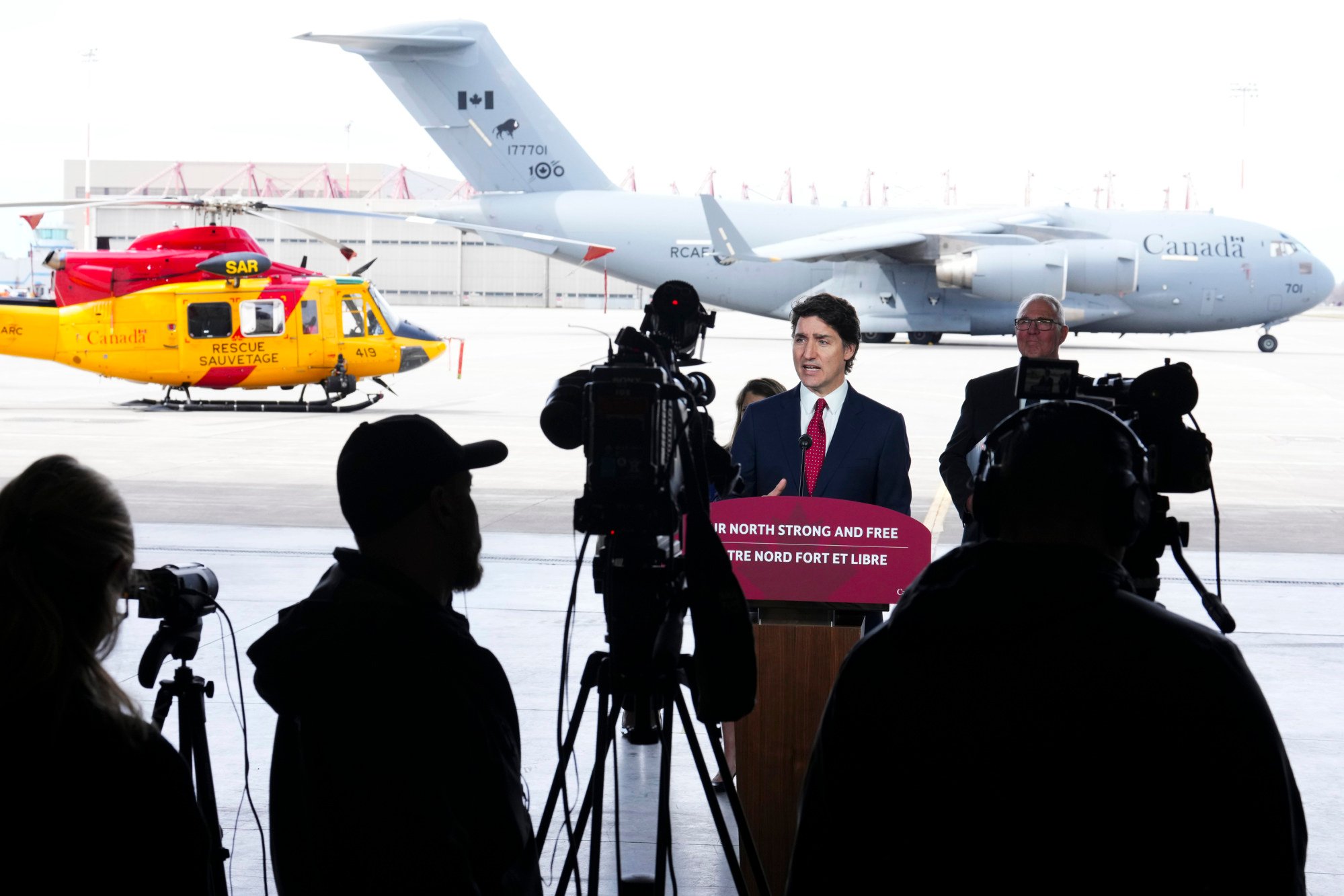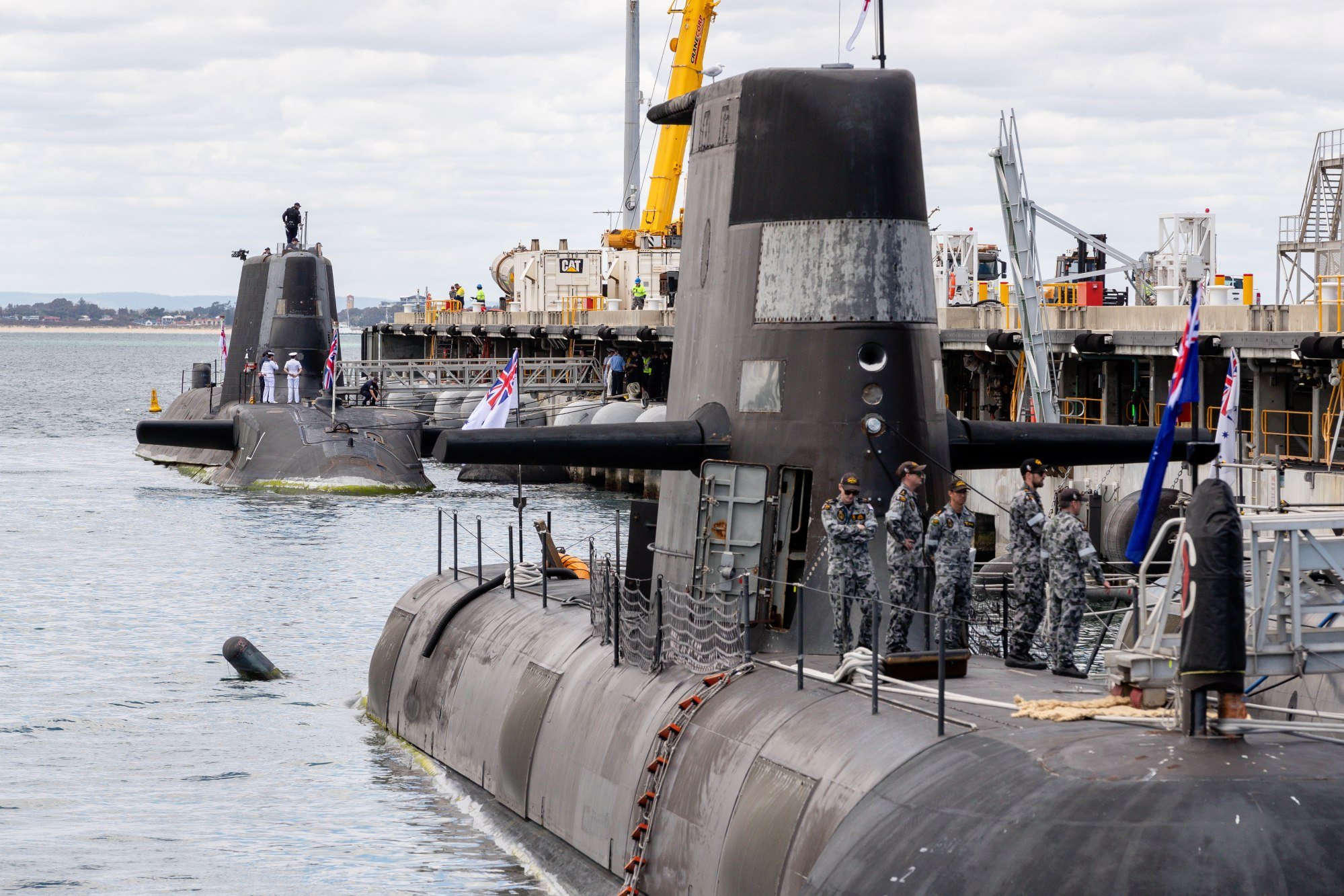Japan is planning to increase its military budget, which could make it the world’s third largest. South Korea has a capable military that has spent decades training and preparing for potential conflict with North Korea. Singapore has well-trained and hi-tech naval and air forces. Deeper relationships with these Asian nations might include more clearly defined security guarantees, enhanced training exercises, joint procurement of advanced weapons systems and stronger collaboration in cyberdefence.
Johnson has even said Canada is the “most obvious next candidate”, in part because it had “fought, often heroically, for freedom” in the past. This week, Canadian Prime Minister Justin Trudeau said he had already held “excellent conversations” with London, Washington and Canberra about joining the Aukus alliance.

Beyond purely military considerations, supporters of Canada’s membership have pointed to the country’s huge supply of critical natural minerals. It is argued that this would allow countries in Aukus to be less reliant on Chinese exports.
One key benefit of Canada joining Aukus would be access to new submarines to protect the Canadian coastline. Canada has the longest coastline in the world which runs along the Arctic, a region under significant geopolitical scrutiny from a number of nations. The next phase of Aukus could be centred around sharing hypersonic, quantum computing and undersea technology.
A key challenge for collaboration, however, for Asian nations outside Aukus, are US restrictions on sharing technological secrets. Japan has proposed legislation to allow it to classify more information as confidential and ask employees at companies who have access to it to undergo security clearance checks. Japan has also said it will bolster defences with a pledge to create a 20,000-strong cybersecurity force and write legislation to fight online attacks.
The latest wave of pillar 2 speculation concerning Aukus underlines that, while some might dismiss the importance of Aukus, the pact is seen as hugely important in the US, the UK and Australia. While the three nations are separate geographically, they have deep historical ties that are being rejuvenated.

Take the example of the growing warmth between London and Canberra, which is bringing new relevance to this long-standing partnership. This includes possible plans for Australia to host two of the Royal Navy’s offshore patrol vessels, as well as the possibility that UK military assets could be based in Australia in the future.
While Aukus is relatively new, it is only the latest chapter in a long history of security and political cooperation. The Five Eyes security alliance, stemming from the intelligence relationship that the US and UK enjoyed in the second world war, was institutionalised in the 1946 BRUSA (later UKUSA) Agreement. Canada, Australia and New Zealand began representing themselves in the intelligence alliance in the late 1940s and 1950s, which led to developments like the 1951 ANZUS treaty.
Britain banned Huawei 5G at the behest of US because ‘that’s what friends do’
Britain banned Huawei 5G at the behest of US because ‘that’s what friends do’
However, the UK previously had more nuanced positions. Former prime ministers Theresa May and Johnson had considered allowing Chinese firms a limited role in building “noncore” parts of the nation’s 5G network. However, Johnson ultimately U-turned on this issue under pressure from Washington. Had there been a big breach between the UK and Australia on this issue, intelligence sharing could have been curtailed, denting ties.
One sign that Aukus is a big political call for the UK is a concern voiced by May about whether the pact could draw London into a war with mainland China over Taiwan, given that the US is committed to supplying the self-governed island with weapons. This issue has resurfaced with recent comments by US deputy secretary of state Kurt Campbell. He suggested Aukus submarines could be deployed against mainland China in any conflict over Taiwan.
Taken together, the Aukus project is assuming new momentum. While expansion of the alliance may be unlikely in the immediate term, collaboration with a range of partners in the Asia-Pacific region and North America appears increasingly possible.
Andrew Hammond is an Associate at LSE IDEAS at the London School of Economics
